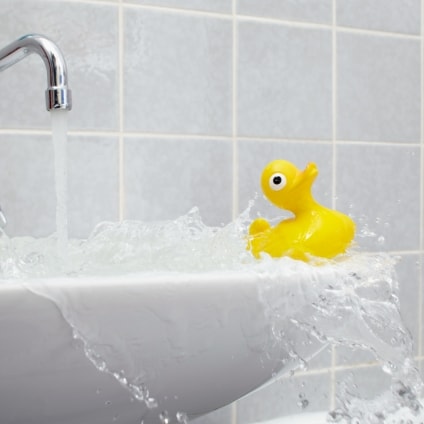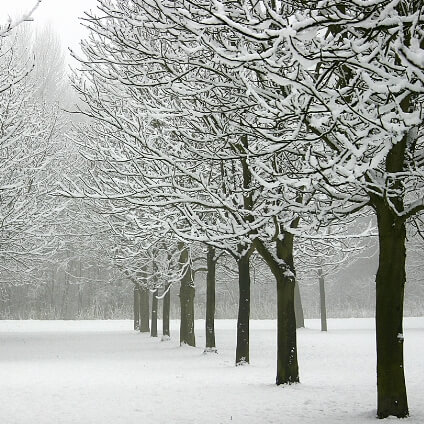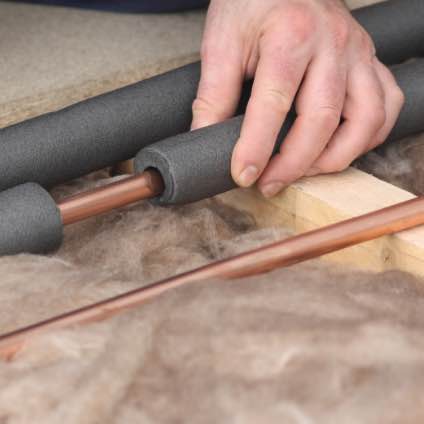Protect Your Home and Business This Winter

Every year, Massachusetts homeowners and small businesses are hit with the harsh reality of winter, worrying about everything from snowy driveways to power outages from the region’s inevitable nor’easters. And while we can’t control the weather, home and small business owners can minimize the risk of damage by following a few simple steps related to heating, plumbing and facilities maintenance, and minimize future financial burdens with the right insurance coverage.
Heating & Candles
According to the U.S. Fire Association, heating fires account for 36 percent of residential home fires in every year. To help keep your home, family and business safe, follow these tips:
Wood Stoves and Fireplace Safety
- Schedule an annual chimney or wood stove inspection and cleaning.
- Clear the area around the hearth of debris, decorations and flammable materials.
- Use fire-resistant materials on walls around wood stoves.
- Burn only seasoned hardwood to help avoid the accelerated creosote buildup that comes with green wood.
- Cover the chimney with a mesh screen spark arrester.
Space Heater Safety
- Maintain a three-foot radius of free space around heaters.
- Only purchase heaters that have:
- Automatic shut-off features (for example, if the heater falls over, it should automatically turn off).
- Been tested by a testing laboratory such as Underwriters Laboratories (UL).
- Turn off the heater whenever you leave the room.
- Never leave the heater on when you’re asleep.
- Never use a space heater to dry clothing.
Candle Safety
- Ensure candles are in stable holders where they cannot be easily accessed by small children and pets.
- Never leave candles unattended. Don’t leave the house with candles burning and be sure to extinguish them before falling asleep.
- Burn candles on a non-combustible surface such as a ceramic or glass plate.
Plumbing
Most New Englanders fear frozen pipes, but many don’t know how to prevent them. The following tips will help keep your water flowing freely and avoid the danger and hassle of bursting pipes all season:
- Before the first snowstorm, be sure you know how to shut off your water.
- If your pipes do freeze, shutting the water off immediately can help prevent them from bursting. And call a plumber immediately.
- Check your pipes for cracks and leaks – and make their repair a priority.
- Keep the temperature at 65 degrees at all times.
- In unfinished rooms, install insulation or wrap pipes with heating tape.
Facilities
And don’t forget to protect your home and business from outside with the following tips:
Gutter Maintenance
- Ensure gutters are clean and free of debris like leaves or pine needles. Clean gutters help melting ice and snow flow freely and prevent ice damming which pushes the melting water under your roof and can cause serious damage.
Ice Dam Prevention
- Do not attempt to break ice dams with a hammer, chisel, or shovel - it can damage your roof and is dangerous. Contact a contractor immediately. Learn more about ice dam prevention.
Roof Stability
- Hire a contractor to check the structural stability of the roof regarding snow accumulation. Ask for tips and advice on how you can safely keep your roof clear of heavy snow.
Foliage and Yard Maintenance
- Before winter storms strike, and throughout the winter season, trim the trees surrounding your home or business and remove all dead branches to help prevent damage from debris and broken tree limbs.
Insulation
- Proper insulation can help prevent snow and ice build-up, collapsing roofs, and the loss of heat and energy. Consider adding additional insulation to attics, basements and even garages.
Insurance
After you’ve completed the above steps, consult your local independent insurance agent to ensure your coverage will protect you in the case of winter damage. For example:
- Speak with your agent about buying flood insurance from the National Flood Insurance Program. Water damage is not covered under normal homeowner’s policies, so you may wish to ask for further information on what consists of wind damage versus water damage, and if your policy includes moisture leaks or damage from ice damming.
- Check your coverage limits annually to ensure it is adequate to repair or rebuild in the current market.
- Keep an itemized list of your property – with photos and/or videos – to help insurance adjusters finalize claims in a timely manner.
The weather outside may get frightful, but by following these easy steps and maintaining the proper insurance coverage, you can enjoy the winter weather without worry.





